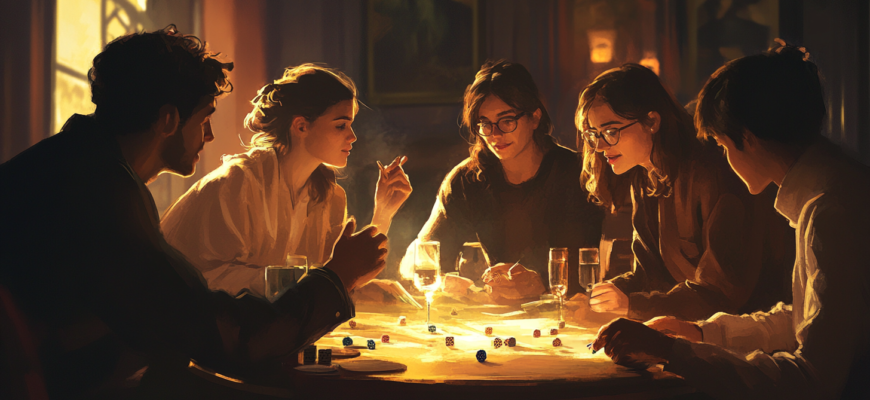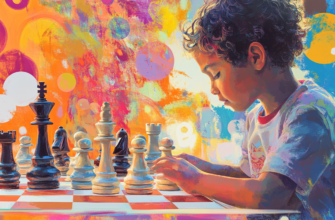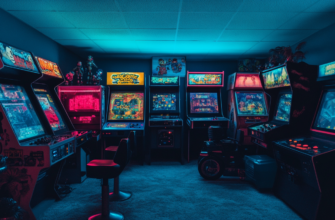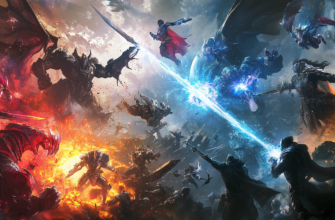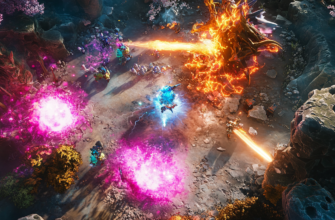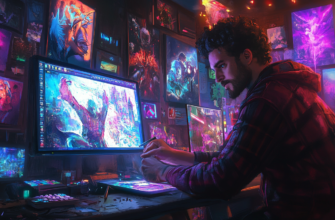- How social games enhance communication and interaction among players
- What are social games? Let’s break it down
- Types of social games
- Step-by-step guide: How social games impact communication and interaction
- Real-world benefits of improving communication through social games
- Here’s what I’ve personally noticed over time:
- Practical tips on improving communication in social games
- 1. Use voice chat whenever possible
- 2. Always clarify strategies before starting
- 3. Stay calm during disagreements
- 4. Be open to feedback from teammates
- 5. Foster casual conversations with teammates
- Conclusion: Social games as a tool for building better communication
How social games enhance communication and interaction among players
Hey, gamer! Whether you’re into conquering worlds, building empires, or just bonding with friends over a chill MMORPG, you’ve probably noticed how certain games foster more than just competition. Social gaming is more than just about winning or finishing quests; it’s about building connections and improving communication skills. In today’s gaming scene, social games have created a new way for us to interact with friends, family, and even strangers across the globe.
And this isn’t just a random observation. There’s real science behind how social games affect communication and interpersonal interaction. In this guide, I’ll take you through the different aspects of how social gaming influences communication, how you can use social games to foster better teamwork, and tips on making your online interactions meaningful.
What are social games? Let’s break it down
First things first: What exactly are social games? We’re talking about games where the emphasis is placed on player interactions. Examples of these games include MMORPGs (like World of Warcraft), multiplayer online battle arenas (League of Legends), and even simple mobile games like Candy Crush Saga.
Social games can vary in complexity and type, but one thing they all have in common is the focus on creating bonds between players through communication and cooperation. These games often require players to talk to each other, whether that’s through text chat, voice chat, or even non-verbal cues like emotes or pings.
Types of social games
- MMORPGs: Massive multiplayer online role-playing games where players team up in guilds or groups to complete quests.
- Cooperative Survival Games: Titles like Ark: Survival Evolved and Rust where team dynamics and communication are crucial for survival.
- MOBA Games: Games like Dota 2 or League of Legends that push players into teams with heavy reliance on coordination and teamwork.
- Casual Mobile Games: Things like multiplayer puzzles or candy-matching games, which allow social interaction, often casually, through simple invites, chats, and rankings.
It’s clear that communication is at the heart of social games. So how exactly do these games enhance or affect our interaction skills? Stick around, I’ve got a lot to share.
Step-by-step guide: How social games impact communication and interaction
- Increased collaboration and teamwork: One of the primary ways social games affect communication is by promoting teamwork. In MMORPGs, for instance, guilds have to work together to coordinate raids, strategies, and item distribution. Team-based strategy requires you to communicate constantly, whether it’s to ensure everyone’s on the same page or just to confirm tactics.
- Trust and rapport building: Have you ever had that one teammate who always rescues you at just the right moment? Social games create opportunities for players to trust each other by proving their reliability during high-pressure situations. This builds rapport and naturally strengthens friendships and group dynamics.
- Problem-solving under pressure: Many top-tier social games throw players into challenges that demand lightning-fast thinking and quick communication. In high-pressure situations like a sudden boss fight in a dungeon or a surprise gank in a MOBA, you learn how to communicate under pressure. These quick problem-solving skills easily translate to real-life situations where effective and fast communication is key.
- Learning to read non-verbal cues: Not all communication is verbal, especially in social games. Ever played a game where typing wasn’t fast enough? Players often use body language (through avatars) and nonverbal cues like pings, gestures, or emotes to communicate their intentions. Learning to read and use these is a skill that can be useful outside of gaming as well.
- Conflict resolution: Let’s face it – conflict happens in games. Whether someone goes AFK (away from keyboard), forgets to heal, or fails a critical task, players are often faced with tension. Learning how to navigate these conflicts without escalating into arguments often teaches players valuable life lessons in terms of diplomacy and managing emotions.
Real-world benefits of improving communication through social games
Man, if someone had told me a few years ago that gaming could improve my real-world communication skills, I’d probably laugh. But looking back, I’ve realized how much my time gaming has taught me about interacting with others. Let me explain the real-life benefits of gaming communication:
“Playing cooperative games has improved not only my problem-solving but also how well I listen to others. It’s not just about me getting the best gear or stats; it’s about being a great team player.”
Here’s what I’ve personally noticed over time:
- Better listening skills: Learning to communicate in a social game goes hand-in-hand with better listening. You can’t coordinate in a raid or PvP match without hearing what your teammate has to say, right? Over time, this has made me way better at listening and responding to feedback outside of gaming.
- Conflict resolution skills: Through so many in-game squabbles, I’ve come to realize that these conflicts actually help in practicing real-world diplomacy. Learning how to resolve issues without flaming has its IRL (in-real-life) implications.
- Leadership abilities: Social games offer a ton of opportunities for players to take on leadership roles, whether you’re the raid leader in WoW or the shot-caller during a MOBA match. Taking responsibility in-game has meant learning the hard way when things go wrong and how to guide teammates toward success.
- Building meaningful relationships: Believe it or not, some of my closest friendships have come from gaming. Spending hours grinding, leveling up, or just pulling off crazy strategies with friends online undeniably fosters strong bonds over time.
Practical tips on improving communication in social games
Okay, now that we know how social games improve communication, let’s talk about how you can maximize this benefit. Let me share with you some personal tips to really get the most out of your social game interactions:
1. Use voice chat whenever possible
Text chat can be useful, but if you really want to coordinate effectively, hop on voice chat. Whether through Discord or in-game features, talking can help you transmit more ideas faster than typing would.
2. Always clarify strategies before starting
Before jumping into any match, be sure to communicate your strategy as a team ahead of time. This sets the right expectations, avoids confusion, and prevents miscommunication during crucial moments in the game.
3. Stay calm during disagreements
If things get tense (and they will), stay calm and try to de-escalate the situation. Losing your cool could lead to bigger conflicts but learning to navigate such moments could save the game and maintain good relationships.
4. Be open to feedback from teammates
We all make mistakes in games. If a teammate points out an area for improvement, stay open to it rather than becoming defensive. This can improve both your communication skills and overall gameplay.
5. Foster casual conversations with teammates
Don’t let your gaming experience be all about missions, raids, and strategy. Often, the best interactions happen in the downtime when you’re just casually chatting with your team. Talk about your day, share some fun stories, and create stronger relationships that’ll make future teamwork even better.
Conclusion: Social games as a tool for building better communication
At the end of the day, social gaming is much more than just an entertaining pastime. It’s a platform where communication skills are constantly refined and personal connections can be built. These games push you out of your comfort zone, teaching you coordination, leadership, conflict resolution, and even how to analyze non-verbal cues.
Next time you jump into your favorite social game, think about the ways your interactions are setting you up for success on and off the screen. Ready to take your communication game to the next level? Dive back into those multiplayer worlds and remember, it isn’t always about the loot—but about what you learn along the way. Until next time, game on!

